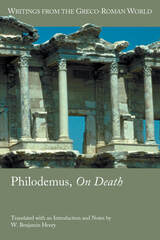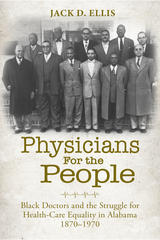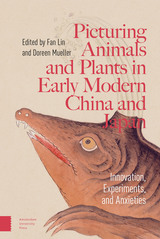4 books about Frankfurt School
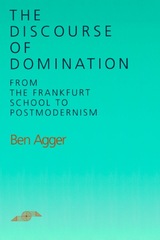
The Discourse of Domination
From the Frankfurt School to Postmodernism
Ben Agger
Northwestern University Press, 1992
The Discourse of Domination tackles nothing less than the challenge of giving critical theory a new grip on current problems, and restoring the left's faith in the possibility of enlightened social change. Agger steers a course between orthodox Marxism and orthodox anti-Marxism, bringing the concepts of ideology, dialectic, and domination out of the academy and making them into "a living medium of political self-expression."
[more]

Feminist Theory and the Frankfurt School, Volume 17
Wendy Brown
Duke University Press
This special issue of differences explores what light Frankfurt School critical theory can shed on contemporary problematics in feminist theory. In contrast to the relatively extensive employment of the work of Jürgen Habermas for this purpose, this special issue focuses on other major thinkers of the Frankfurt School, especially Horkheimer, Adorno, and Benjamin.
[more]
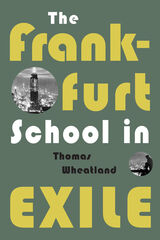
The Frankfurt School in Exile
Thomas Wheatland
University of Minnesota Press, 2009
Members of the Frankfurt School have had an enormous effect on Western thought, beginning soon after Max Horkheimer became the director of the Institute for Social Research at the University of Frankfurt am Main, in 1930. Also known as the Horkheimer Circle, the group included such eminent intellectuals as Theodor Adorno, Herbert Marcuse, Erich Fromm, Leo Lowenthal, and Friedrich Pollock. Fleeing Nazi oppression, Horkheimer moved the Institute and many of its affiliated scholars to Columbia University in 1934, where it remained until 1950.
Until now, the conventional portrayal of the Institute has held that its members found refuge by relocating to Columbia but that they had little contact with, or impact on, American intellectual life. With insight and clarity, Thomas Wheatland demonstrates that the standard account is wrong. Based on deep archival research in Germany and in the United States, and on interviews conducted with luminaries such as Daniel Bell, Bernadine Dohrn, Peter Gay, Todd Gitlin, Nathan Glazer, Tom Hayden, Robert Merton, and others, Wheatland skillfully traces the profound connections between the Horkheimer Circle’s members and the intellectual life of the era. Reassessing the group’s involvement with the American New Left in the 1960s, he argues that Herbert Marcuse’s role was misunderstood in shaping the radical student movement’s agenda. More broadly, he illustrates how the Circle influenced American social thought and made an even more dramatic impression on German postwar sociology.
Although much has been written about the Frankfurt School, this is the first book to closely examine the relationship between its members and their American contemporaries. The Frankfurt School in Exile uncovers an important but neglected dimension of the history of the Frankfurt School and adds immeasurably to our understanding of the contributions made by its émigré intellectuals to postwar intellectual life.
Until now, the conventional portrayal of the Institute has held that its members found refuge by relocating to Columbia but that they had little contact with, or impact on, American intellectual life. With insight and clarity, Thomas Wheatland demonstrates that the standard account is wrong. Based on deep archival research in Germany and in the United States, and on interviews conducted with luminaries such as Daniel Bell, Bernadine Dohrn, Peter Gay, Todd Gitlin, Nathan Glazer, Tom Hayden, Robert Merton, and others, Wheatland skillfully traces the profound connections between the Horkheimer Circle’s members and the intellectual life of the era. Reassessing the group’s involvement with the American New Left in the 1960s, he argues that Herbert Marcuse’s role was misunderstood in shaping the radical student movement’s agenda. More broadly, he illustrates how the Circle influenced American social thought and made an even more dramatic impression on German postwar sociology.
Although much has been written about the Frankfurt School, this is the first book to closely examine the relationship between its members and their American contemporaries. The Frankfurt School in Exile uncovers an important but neglected dimension of the history of the Frankfurt School and adds immeasurably to our understanding of the contributions made by its émigré intellectuals to postwar intellectual life.
[more]
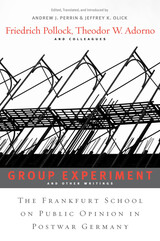
Group Experiment and Other Writings
The Frankfurt School on Public Opinion in Postwar Germany
By: Friedrich Pollock, Theodor W. Adorno, and ColleaguesEdited, Translated and Introduced by: Andrew J. Perrin and Jeffrey K. Olick
Harvard University Press, 2011
During the occupation of West Germany after the Second World War, the American authorities commissioned polls to assess the values and opinions of ordinary Germans. They concluded that the fascist attitudes of the Nazi era had weakened to a large degree. Theodor W. Adorno and his Frankfurt School colleagues, who returned in 1949 from the United States, were skeptical. They held that standardized polling was an inadequate and superficial method for exploring such questions. In their view, public opinion is not simply an aggregate of individually held opinions, but is fundamentally a public concept, formed through interaction in conversations and with prevailing attitudes and ideas “in the air.” In Group Experiment, edited by Friedrich Pollock, they published their findings on their group discussion experiments that delved deeper into the process of opinion formation. Andrew J. Perrin and Jeffrey K. Olick make a case that these experiments are an important missing link in the ontology and methodology of current social-science survey research.
[more]
READERS
Browse our collection.
PUBLISHERS
See BiblioVault's publisher services.
STUDENT SERVICES
Files for college accessibility offices.
UChicago Accessibility Resources
home | accessibility | search | about | contact us
BiblioVault ® 2001 - 2025
The University of Chicago Press


